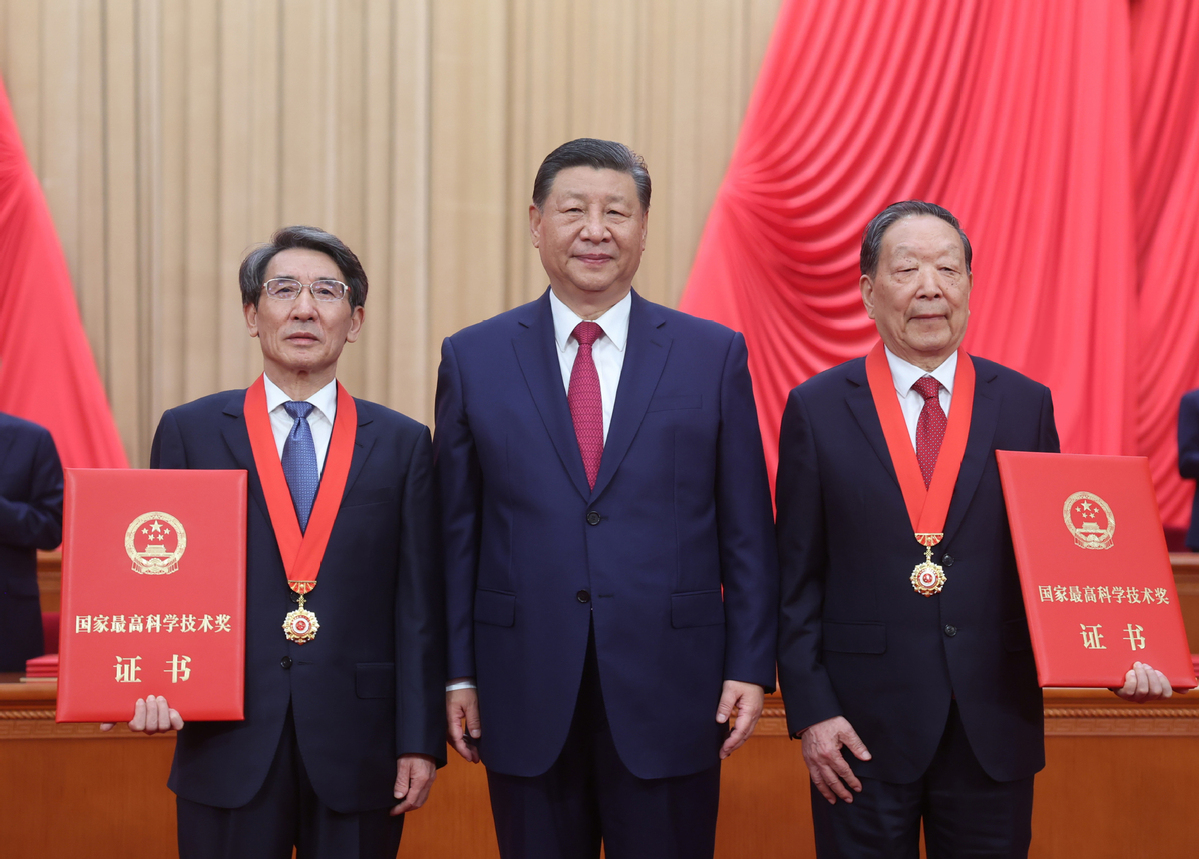
Academicians: Role models for science encouraged
Chinese President Xi Jinping set out a sweeping vision on Monday to build China into a strong nation in science and technology by 2035, calling for stronger steps to bolster the nation's self-reliance drive while enhancing openness and global cooperation.
In a landmark speech delivered to academicians, researchers and senior officials in Beijing, Xi, who is also general secretary of the Communist Party of China Central Committee and chairman of the Central Military Commission, stressed the need for a stronger sense of urgency and greater strides in innovation to "seize the commanding heights in sci-tech competition and future development".
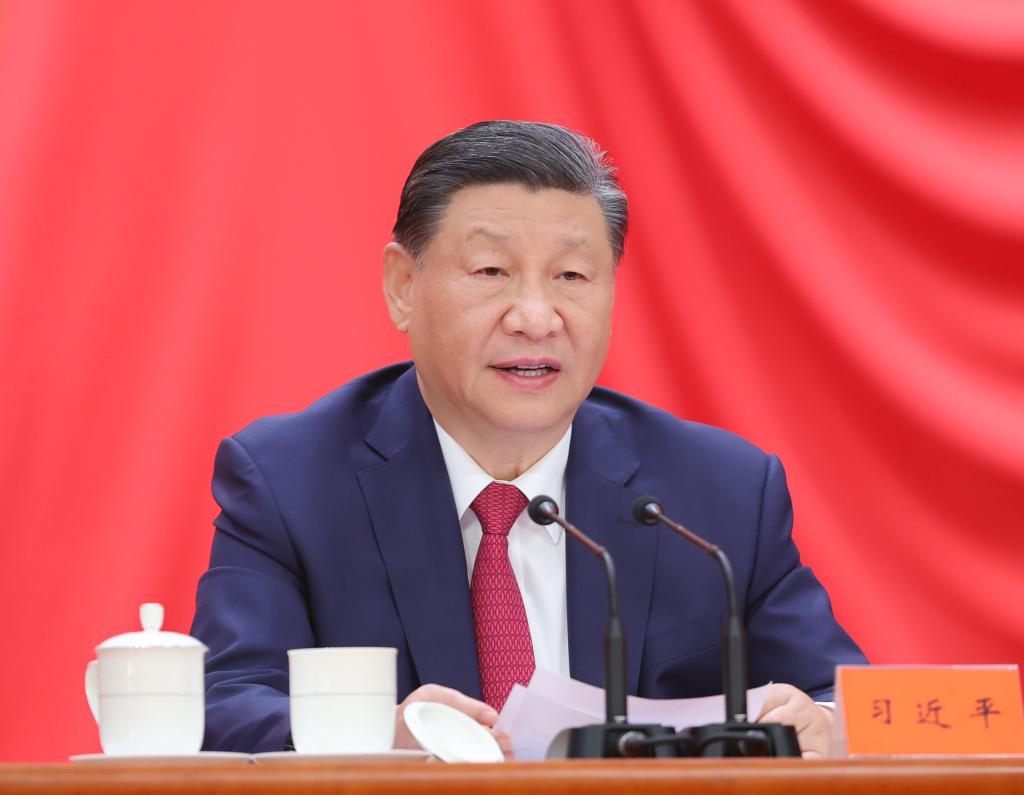
The speech was given at a meeting at the Great Hall of the People that combined the national sci-tech conference, the national science and technology award conference, and the general assemblies of the members of the Chinese Academy of Sciences and the Chinese Academy of Engineering.
During the meeting, Xi presented medals and certificates for the country's top sci-tech award to Li Deren, an academician of the CAS and CAE from Wuhan University, and Xue Qikun, an academician of the CAS from Tsinghua University.
READ MORE: Xi stresses sci-tech modernization, innovation
"A nation thrives when its science and technology thrive, and a robust science and technology sector is the cornerstone of a strong nation," the president said in the 45-minute speech.
"Chinese modernization hinges on sci-tech advancement, and the nation's high-quality development depends on building new momentum of growth through innovation in science and technology," he said.
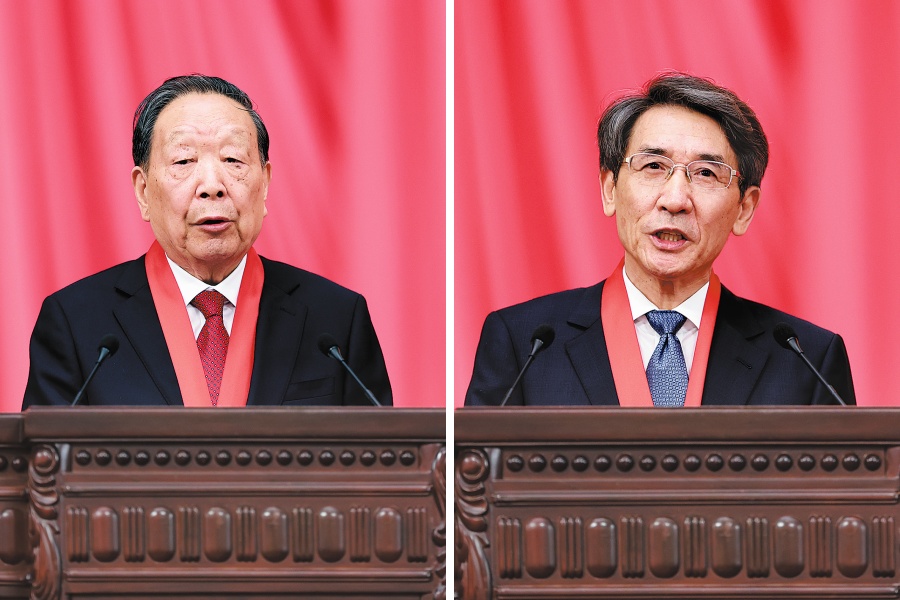
Xi summarized China's key achievements in sci-tech development since the 18th National Congress of the CPC in November 2012, before putting forward key experiences drawn from development practices during the period.
Going forward, Xi reiterated the need to maximize the decisive role of the market in allocating sci-tech resources while enhancing government functions, and to boost enthusiasm across industry, academia and research.
ALSO READ: Xi replies to Tsinghua professor on education, science contribution
He called for steps to drive the integration of technological and industrial innovation to boost the development of new quality productive forces, saying that the supply of high-quality technological products must be increased, with a focus on key areas and weak links in the construction of a modern industrial system.
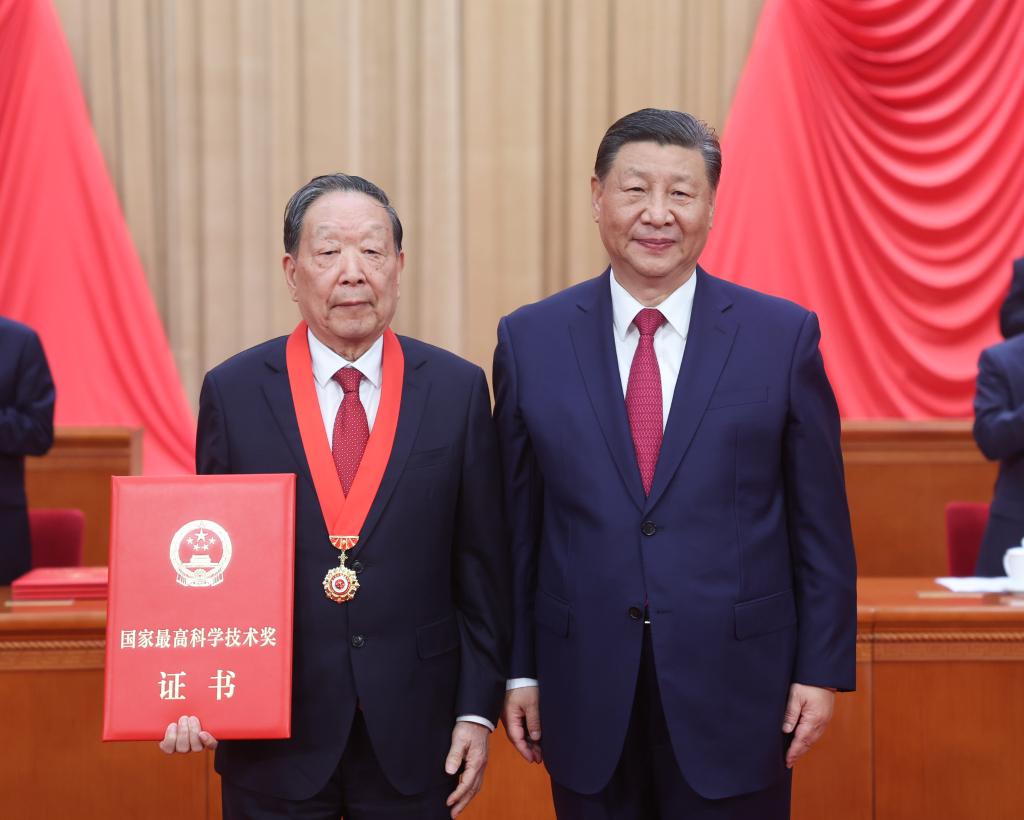
He highlighted the significance of spawning emerging and future industries and actively using new technologies to upgrade traditional industries.
The priority is to train outstanding engineers, master craftsmen and highly skilled individuals, while strengthening the training of young scientific and technological talent, he said.
Xi said that, going forward, China will broaden channels of exchanges and cooperation at official and people-to-people levels, leverage platforms such as the Belt and Road Initiative, and support joint research efforts by scientists from various countries
Xi stressed that China must practice the concept of building a community with a shared future for mankind and achieve self-reliance and self-improvement in the sci-tech sector through open cooperation.
"The more intricate the global landscape grows, the more crucial it becomes for us to embrace openness and inclusivity, while coordinating opening-up and security. By engaging in open cooperation, we can drive self-reliance and advancement."
READ MORE: China’s sci-tech strides under President Xi lauded
Xi said that, going forward, China will broaden channels of exchanges and cooperation at official and people-to-people levels, leverage platforms such as the Belt and Road Initiative, and support joint research efforts by scientists from various countries.
He reaffirmed China's commitment to actively integrate into the global innovation network, deeply participate in global scientific and technological governance, jointly address global challenges, and use science and technology to better benefit humanity.
The president also encouraged academicians to serve as pioneers at the forefront of science and technology, and to take on major tasks, help young people to explore their potential, and become role models for the scientific spirit.
READ MORE: China nurtures unicorn firms with sci-tech innovation
The vision presented by Xi during the meeting also impressed international scientists who were invited to the event.
Abbas Firoozabadi, a distinguished research professor at Rice University in the United States, said the fact that President Xi himself conferred the nation's highest top science award was proof of the emphasis that China's leadership places on the development of science and technology.
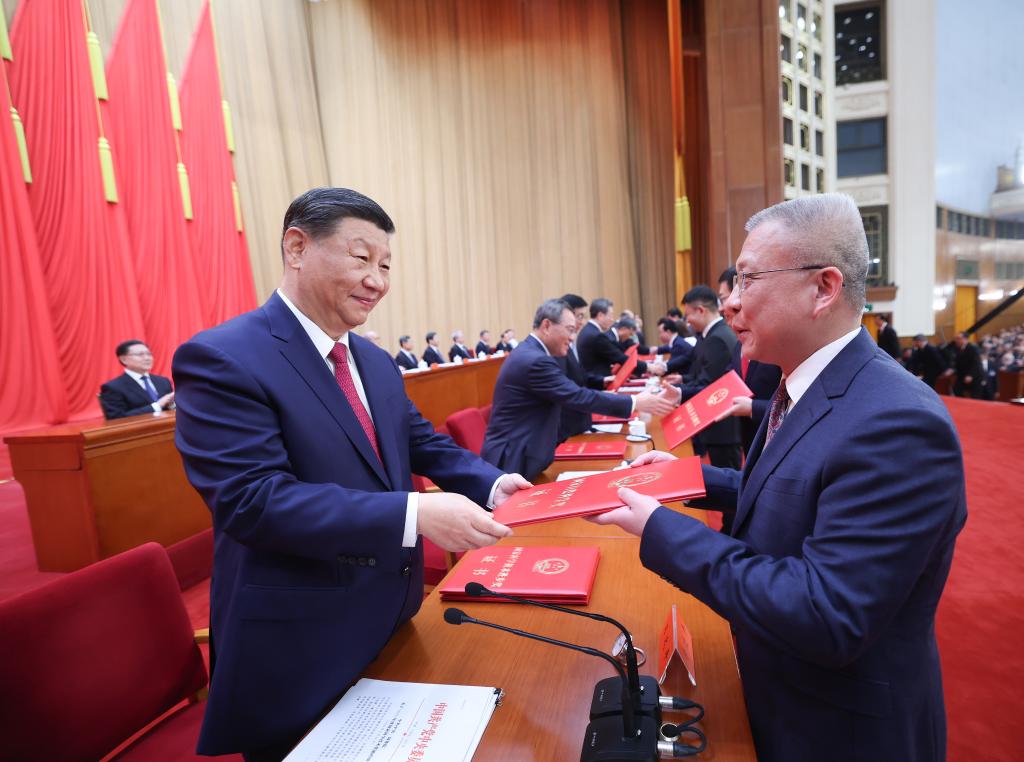
Soroosh Sorooshian, a distinguished professor of civil and environmental engineering at the University of California, Irvine, said he was "most impressed by the leader of a great country putting emphasis on the importance of science and technology and international cooperation".
"Global challenges require cooperation between major countries to work together," he added.
Dale Sanders, a plant biologist and a fellow of the Royal Society in the United Kingdom, said that Xi gave a comprehensive and thorough review of Chinese science in his speech.
READ MORE: Greater efforts urged on sci-tech cooperation
"What particularly excited me was the commitment to collaborate internationally to help solve global issues such as global warming, health issues and agricultural issues," Sanders said. "It was an inspiring presentation."
Sanders expressed his belief that China's strong emphasis on self-reliance in science and technology "absolutely does not mean closing its own doors".
"The more China has opened its doors over the last decade, the more China has prospered from that and the more the rest of the world has."


